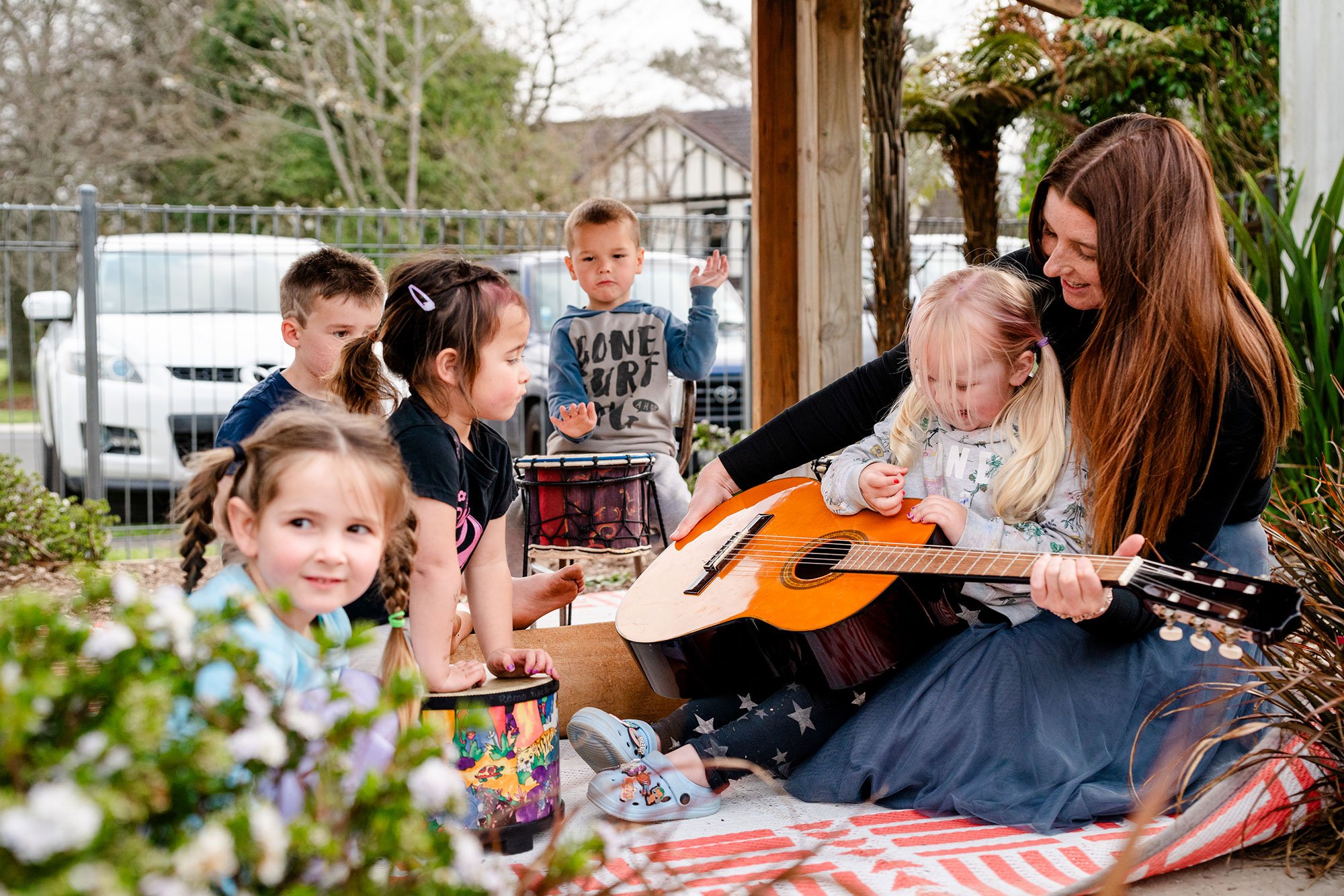
We know tamariki respond well and gain a sense of belonging and wellbeing when surrounded by familiar people, with familiar ways of doing things.
At Central Kids care routines such as nappy changing, sleep and eating are structured around tamariki rhythms and their choices about their day. Tamariki are able to make choices and decisions for themselves, which positively influences their thinking about their world.
Kaiako also respond to their individual needs, such as noticing when their behaviour indicates a need for food, or they have an interest in a particular topic.
Benefits of making their own choices
- Knowing my body and satisfying its needs.
- Being able to follow a routine and managing this for myself.
- Being part of a social group I choose for myself.
- Developing self-determination (this is what I need right now).
- Developing positive self-regard (I can make the best choice for me).
- My learning is uninterrupted by adult schedules (I can remain engaged as I learn until I am ready to move on).
- Structuring familiar routines for myself, which enable me to feel I belong.
- I see that adults are respectful and value my play.
Kai time
At Central Kids we believe that you know your tamaiti best. Unless your tamaiti is enrolled with a service that receives KidsCan support, they will bring their own familiar food from home, as you know what your tamaiti needs to sustain them through their day. We also have some kai available if tamariki finish their food and are still hungry.
- Please pack a lunchbox with food your tamaiti enjoys, that will keep them satisfied and ready for learning with a full puku (tummy).
- We encourage you to pack food without packaging, to reduce rubbish. For example, yoghurt can be put into small, washable containers that tamariki can open themselves.
- If your service is supported by KidsCan, kaiako will explain how this works and the benefit for your whānau.
If there are foods your tamaiti can’t eat, please make sure you let us know when filling out your enrolment form. Tamariki eat according to their need for food, social connection or a break from the busyness of their play. Tamariki are supervised and seated while eating.
Managing their own lunchbox and making decisions about when and in what order they eat their kai grows their independence. Tamariki are able to be responsive to their own biological needs (my tummy is grumbling) and develop a life-long skill of understanding and caring for self and others.
Tamariki often have opportunities to prepare kai either as part of a group or individually. This supports knowing where food comes from, with a sense of satisfaction of eating or sharing food they have prepared (experiencing manaakitanga).
If your child is offered additional kai we will let you know (such as cooking/baking, shared kai, or they have finished their own food and are still hungry).
Lunchbox suggestions
Here are some ideas for foods that are suitable for lunchboxes. There are also some great ideas on the Heart Foundation website.
- Custard or yoghurt.
- Cheese or cottage cheese.
- Cold meats (chopped small and bone free).
- Luncheon meats.
- Meat balls.
- Sandwiches in different shapes and flavours.
- Orange, grated apple, banana, raisins.
- Avocado, tomatoes.
- Boiled or steamed vegetables.
- Fruit salad or fruit jelly.
- Pizza.
- Left over dinner.
- Pasta.
- Fruit bars (check sugar content).
- Mini muffins.
- Scones.
- Buns or rolls with a filling.
- Crackers (not rice crackers).
Please make sure you read the Ministry of Health brochure about reducing food-related choking for babies and young children at early learning services, which includes information about making sure the food they bring is safe.
Bottle feeding
If your tamaiti needs to be fed formula or breast milk, we will share our bottle feeding procedure with you. You will be asked for your consent for kaimahi to bottle feed your tamaiti in a section of our enrolment form.
Group mat times
Group mat times evolve around the tamariki who want to participate in these activities. Waiata, games and stories happen in small groups and tamariki are encouraged to follow their interests. At times there may be large group gatherings that tamariki are invited to attend, such as celebrations, whakatau or special visitors.
Moe (sleep) times
Sleep is an important part of wellbeing and child development, and is individualised to the needs of your tamaiti. Tell us about the sleep needs of your tamaiti when you enrol.
- There is a dedicated place for sleep.
- The sleep space is away from other tamariki, and actively supervised.
- Sleep times are recorded, with checks made every 5-10 minutes.
- We will follow the lead of your tamaiti if they indicate they would like to rest or sleep, by paying attention to their verbal and non-verbal cues.
- When you request they stop having daytime sleeps, we will work with you to gradually reduce the sleeping time, as needed.
- We observe tikanga, and where possible tamariki will sleep with their bodies lying in the same direction to avoid feet to head placement. We will not walk over a sleeping tamaiti.
Central Kids has a sleep procedure that supports our kaimahi to ensure tamariki are safe and comfortable while sleeping.
You are welcome to view the full sleep procedure at any time. It is on display at our service and available in the designated sleep area, or you can ask one of our kaimahi.
